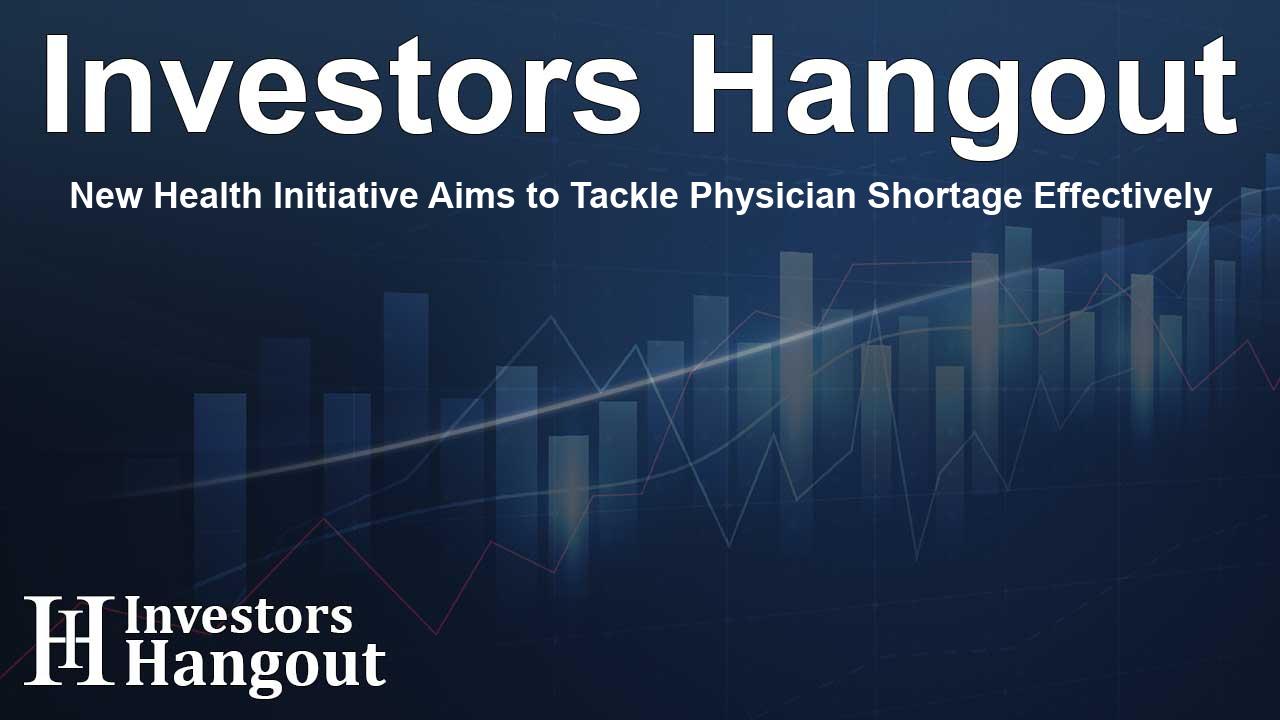New Health Initiative Aims to Tackle Physician Shortage Effectively

New Health Initiative Aims to Tackle Physician Shortage Effectively
Overview of the Initiative
The University of Maryland School of Medicine has embarked on a significant initiative aimed at addressing the pressing physician shortage on Maryland's Eastern Shore. This initiative, known as the Rural Health Equity and Access Longitudinal Elective (R-HEALE), has garnered substantial support, including $1.4 million in state funding to train and place incoming medical students in regional healthcare settings.
Program Details
In collaboration with the University of Maryland Eastern Shore (UMES), the R-HEALE program has welcomed its first cohort of medical students, all passionate about making a difference in rural health. Among these students, three have received full-tuition scholarships, promising to serve on the Eastern Shore for four years after completing their residency training. Throughout the program, students will engage in didactic and mentoring sessions, enabling them to gain both research and clinical experience essential for their future careers.
Challenges Faced in Rural Health
The Eastern Shore struggles with a severe shortage of medical providers, classified as a medically underserved area by the federal government. For instance, Caroline County lacks adequate healthcare resources, with only one physician available for every 2,500 residents. Such disparities in healthcare access can lead residents to avoid critical medical appointments, sometimes requiring them to travel significant distances for care.
The Vision for Better Healthcare
Dr. Donna Parker, Senior Associate Dean for Undergraduate Medical Education at the University of Maryland School of Medicine, emphasized the importance of this program in building a robust workforce of healthcare professionals. "Our goal is to develop a cohort of up to 10 new physicians annually to mitigate the healthcare shortage and enhance service accessibility," she stated. The initiative also aims to help improve overall health outcomes in the region through increased access and reduced wait times for medical appointments.
Research indicates that residents in rural areas, particularly those living in smaller communities, often face higher risks of chronic health complications. A recent study revealed that individuals in these settings experience a greater likelihood of heart attacks and other serious health issues compared to their urban counterparts. Tackling these challenges is central to the program's mission.
Supporting the Community
UMSOM's R-HEALE program aims to instill a strong commitment to long-term healthcare improvement among students. Each participant will benefit from mentorship under experienced physicians in rural health settings, allowing for hands-on learning and practical experience. As part of their training, students will participate in rural health-focused research projects, providing them with insights into the specific health challenges faced by the local population.
Partnerships and Future Aspirations
With the support of numerous healthcare organizations including University of Maryland Shore Regional Health and TidalHealth, the R-HEALE program is set to play a pivotal role in enhancing healthcare delivery on the Eastern Shore. Ken Kozel, President and CEO of UM Shore Regional Health, highlighted the importance of such collaborative initiatives: "Strengthening our provider workforce is a top priority, and programs like R-HEALE are crucial for attracting doctors to rural communities."
Conclusion
As the University of Maryland School of Medicine continues to develop this innovative program, the long-term goal remains clear: to foster a new generation of healthcare professionals dedicated to improving rural health outcomes and ensuring better access to care for all residents.
Frequently Asked Questions
What is the R-HEALE program?
The R-HEALE program focuses on training medical students to address healthcare disparities in rural areas, particularly on Maryland's Eastern Shore.
How many students are currently enrolled in the R-HEALE program?
The program has accepted six first-year medical students interested in rural health, with plans to grow this number in future cohorts.
What funding supports the R-HEALE program?
The initiative has received substantial funding, including $1.4 million from the state, with additional support from various universities and donors.
What do the scholarship recipients promise to do after graduation?
Scholarship recipients commit to practicing on the Eastern Shore for four years following their residency, helping to address local physician shortages.
Why is the Eastern Shore identified as a medically underserved area?
The Eastern Shore has a significantly low number of healthcare providers per capita, leading to limited access to essential medical services for residents.
About Investors Hangout
Investors Hangout is a leading online stock forum for financial discussion and learning, offering a wide range of free tools and resources. It draws in traders of all levels, who exchange market knowledge, investigate trading tactics, and keep an eye on industry developments in real time. Featuring financial articles, stock message boards, quotes, charts, company profiles, and live news updates. Through cooperative learning and a wealth of informational resources, it helps users from novices creating their first portfolios to experts honing their techniques. Join Investors Hangout today: https://investorshangout.com/
Disclaimer: The content of this article is solely for general informational purposes only; it does not represent legal, financial, or investment advice. Investors Hangout does not offer financial advice; the author is not a licensed financial advisor. Consult a qualified advisor before making any financial or investment decisions based on this article. The author's interpretation of publicly available data shapes the opinions presented here; as a result, they should not be taken as advice to purchase, sell, or hold any securities mentioned or any other investments. The author does not guarantee the accuracy, completeness, or timeliness of any material, providing it "as is." Information and market conditions may change; past performance is not indicative of future outcomes. If any of the material offered here is inaccurate, please contact us for corrections.